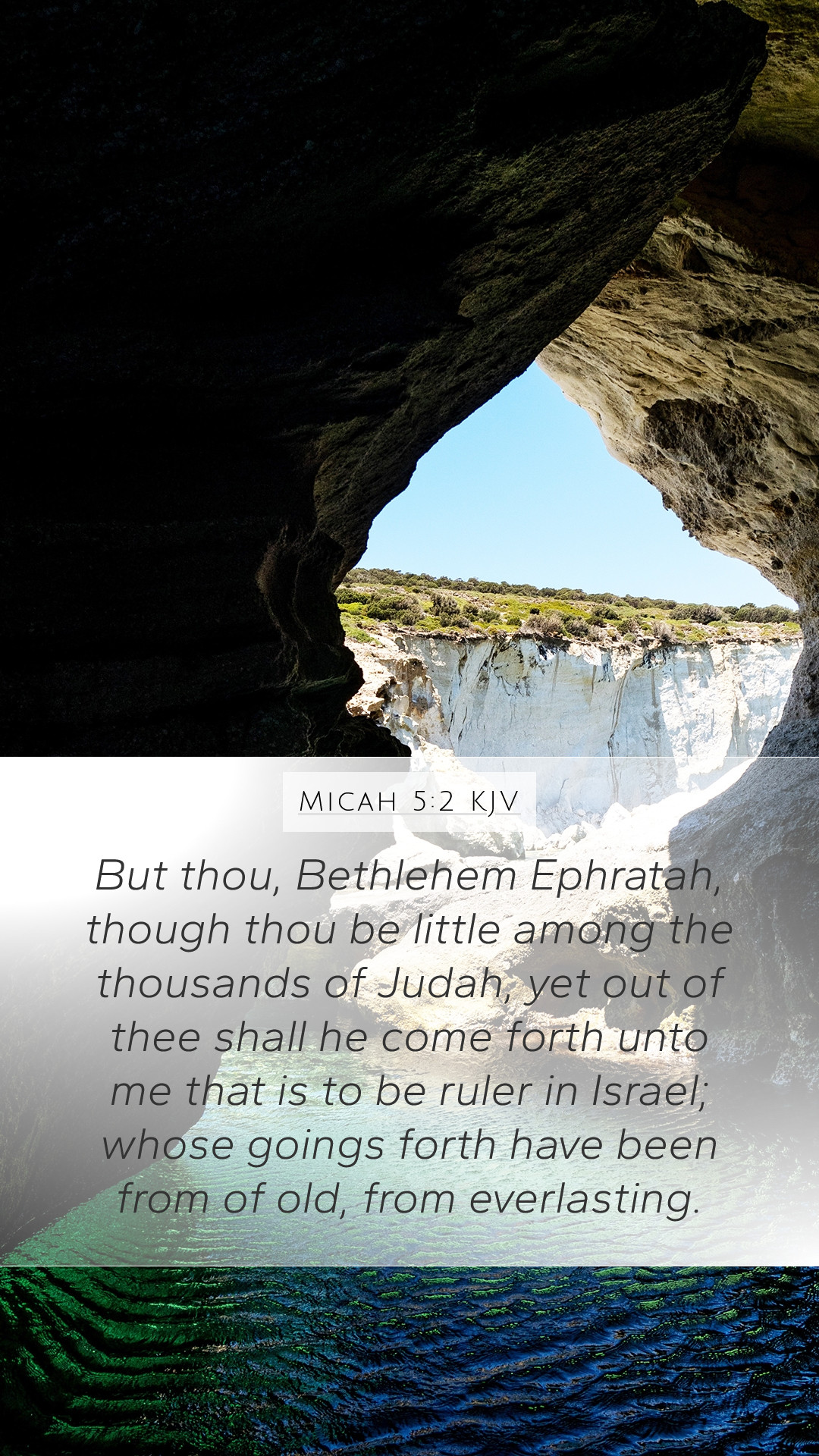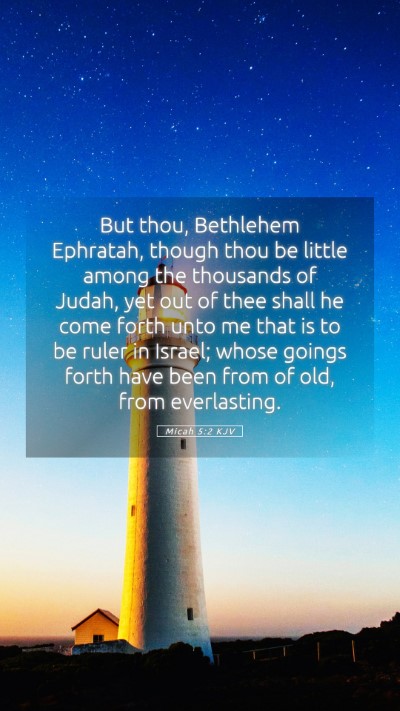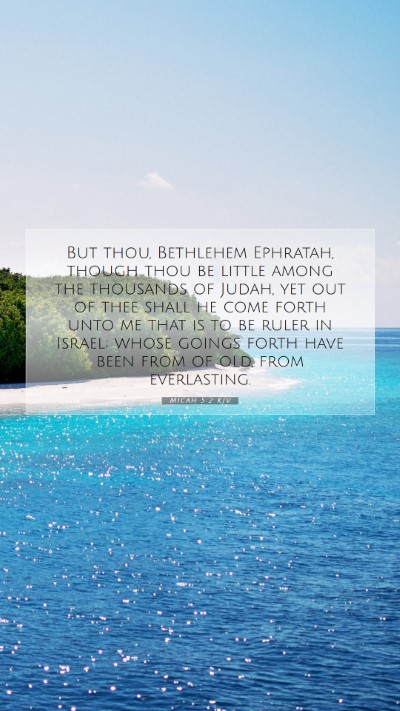Old Testament
Genesis Exodus Leviticus Numbers Deuteronomy Joshua Judges Ruth 1 Samuel 2 Samuel 1 Kings 2 Kings 1 Chronicles 2 Chronicles Ezra Nehemiah Esther Job Psalms Proverbs Ecclesiastes Song of Solomon Isaiah Jeremiah Lamentations Ezekiel Daniel Hosea Joel Amos Obadiah Jonah Micah Nahum Habakkuk Zephaniah Haggai Zechariah MalachiMicah 5:2 Meaning
What is the meaning of Micah 5:2?
But thou, Bethlehem Ephratah, though thou be little among the thousands of Judah, yet out of thee shall he come forth unto me that is to be ruler in Israel; whose goings forth have been from of old, from everlasting.
Micah 5:2 Bible Verse Meaning
Meaning and Interpretation of Micah 5:2
Verse: Micah 5:2 - "But thou, Bethlehem Ephratah, though thou be little among the thousands of Judah, yet out of thee shall he come forth unto me that is to be ruler in Israel; whose goings forth have been from of old, from everlasting."
Overview
Micah 5:2 is a profound prophetic verse that speaks of the birthplace of the Messiah, highlighting the significance of Bethlehem despite its humble status among the tribes of Judah. This verse has been widely recognized in biblical exegesis as a key Old Testament prophecy regarding the incarnation of Jesus Christ.
Bible Verse Commentary
Various Bible commentaries provide rich interpretations of Micah 5:2, emphasizing its Messianic implications and historical context:
- Matthew Henry: Henry emphasizes the lowly stature of Bethlehem, suggesting that God's choice to bring forth the ruler of Israel from such a place exemplifies divine sovereignty. It teaches believers about God's ability to use the insignificant for great purposes.
- Albert Barnes: Barnes outlines the prophetic nature of the text, noting that the phrase "whose goings forth have been from of old, from everlasting" signifies the pre-existence of Christ, reinforcing the doctrine of His eternal nature and divinity.
- Adam Clarke: Clarke reflects on the geographical and historical significance of Bethlehem, describing it as a location that signifies humility and yet becomes a focal point in the redemption narrative. His commentary often highlights the poetic structure of the text.
Meaning of the Verse
The meaning of Micah 5:2 can be unpacked through several key themes:
- Humility of Bethlehem: The verse underscores the idea that great things can emerge from modest beginnings. Bethlehem, often overlooked, is chosen as the birthplace of the Messiah.
- Messianic Prophecy: This scripture points to the coming of a ruler who will shepherd God’s people. It foreshadows the advent of Jesus Christ and His role as a leader and savior.
- Eternality of Christ: The reference to the ruler's origins speaks to the eternal nature of Christ, affirming that His existence is not constrained by time and has been part of the divine counsel since the beginning.
Bible Study Insights
For those engaging in Bible study groups or personal online Bible study, this verse serves as a foundational text for understanding messianic prophecies. It invites deeper investigation into:
- Bible study lessons: How does the humility of Jesus' birthplace inform our understanding of His character and mission?
- Bible study topics: The significance of prophecy in the Old Testament and its fulfillment in the New Testament.
- Bible study resources: Johannine literature that further expands on the divinity and pre-existence of Christ.
Application in Daily Life
This verse encourages believers to reflect on:
- The importance of humility and how God can work through small and seemingly insignificant things in our lives.
- The assurance that God's plan of redemption has been established from eternity, which inspires faith and trust.
- Awareness that Christ's reign is already established, encouraging believers to live in accordance with His teachings.
Additonal Cross References
Similar themes can be found in other scripture passages, including:
- Isaiah 9:6-7: Prophecy regarding the coming Messiah and His everlasting kingdom.
- Matthew 2:6: Reference to Micah 5:2 indicating Jesus' birthplace.
- John 1:1-3: Affirmation of Christ's eternal nature as the Word.
Conclusion
In sum, Micah 5:2 serves as a cornerstone for understanding the identity of Jesus Christ as the promised ruler. It epitomizes the intersection of humility and divine purpose and challenges believers to look beyond outward appearances to the hidden work of God. The insights drawn from various commentaries provide depth and richness to your Bible verse understanding, making it an essential study text.


